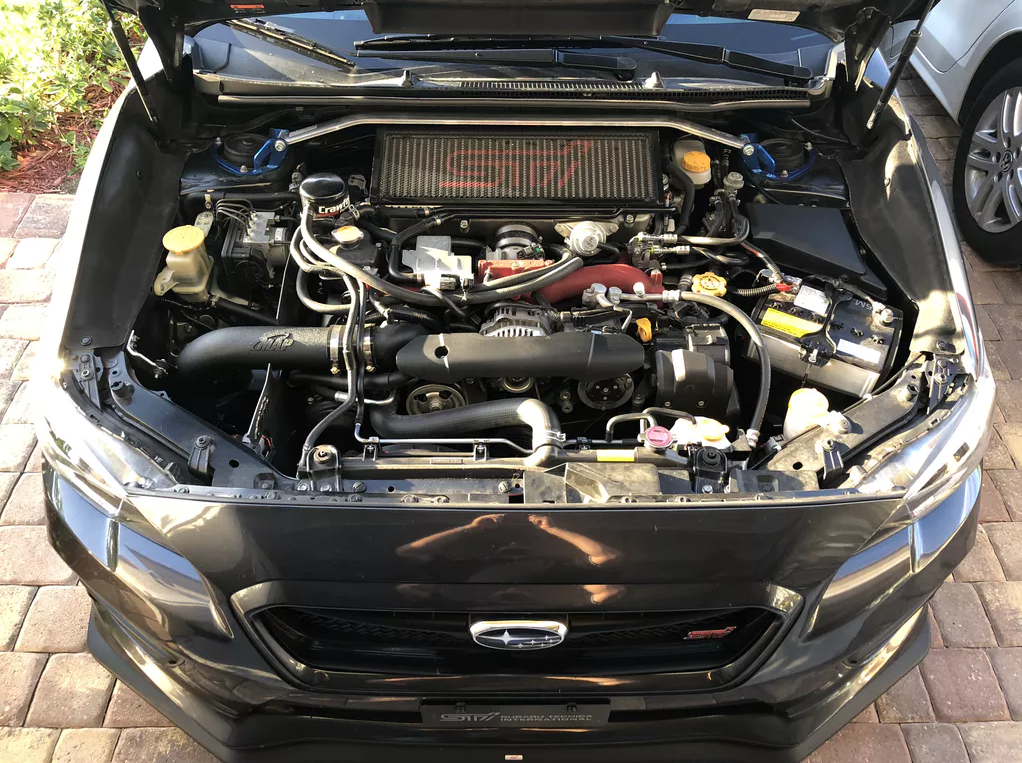Not sure what materials to use for your turbo piping? We have the answers!
You've made the decision to turbocharge your car and upgrade your stock pipes and intercooler piping. This is the first step in the quest for power. But this is just the first step in a long automotive replacement engine turbocharger piping journey. The next big milestone is figuring out what materials you're going to use to put your turbo parts list together. Let MAPerformance help send you in the right direction with this handy turbo piping guide!

Turbo Exhaust Piping
When it comes to turbo piping kits, the first area folks think about is the exhaust portion. This is likely due to the fact that without a solid plan for your exhaust, you won't have a turbo. First you want to figure out the general area where you want your turbo up-pipe, then visualize the route the pipe will have to take from the exhaust manifolds to the turbine housing. Most 4 cylinder engines are easy, as they have a single exit manifold and only need to run a single pipe to the turbo. V6, V8, and other larger engines in a V shape are different, requiring a merge of the two manifolds at some point before the turbo. The downpipe is another area of the exhaust you'll need to visit while building your turbo parts list. This is the special kit that takes the used exhaust from the turbine housing to the back of the car.
Turbo Exhaust Piping Materials
The materials you choose to use for your turbo exhaust piping can make-or-break a solid turbo piping set-up. Using low quality or poorly constructed steel, plastic pipes, or cheap rubber intercooler pipes will typically result in failure. Stainless steel pipes or aluminum pipes such as 409ss or 304ss with a high degree of flexibility are the usual choices for most experienced hot-side builders. It's best to avoid aluminized or mild steel due to its vulnerability to rust. Both 304ss and 409ss resist rust, but 304ss has been proven to resist the effects of corrosion better. You always want to avoid using crush bent piping, as this type will kill exhaust flow where it matters most. You always want to use mandrel bent turbo piping wherever possible.
Turbo Exhaust Accessories
It's always best to choose stainless turbo flanges to resist the chances of cracking and heat warping. As far as gaskets are concerned, you always want to choose metal gaskets for all exhaust components due to the high heat these components see. Rubber and cork gaskets will simply melt away and cause leaks. As always, use a stainless steel material for all EGT and O2 sensor bungs.

Turbo Inlet Piping
Most people are quick to assume that aluminum piping is best for all turbo inlet line of piping, be it intercooler pipes or intake. However, in our experience that isn't always the case. While aluminum piping is certainly lighter than stainless or mild steel, it soaks up the heat from the engine bay like a magnet, negatively affecting your charge temps. If you're set on using aluminum in your intake/inlet piping, the turbo inlet is the best place to do so but only if you're using an intercooler.
Universal Turbo Intercooler Piping
The intercooler piping in almost every aftermarket part kit is made from mandrel smooth bends, either aluminum or stainless. This is because you need to have a smooth flowing pipe that leads to your throttle body to get the most power from your vehicle. You'll also find most kits use silicone couplers or stainless steel joiners (lightweight stainless steel joiners) to join pipes, but only where needed. Design your intercooler piping using stainless steel to reduce the effects of heat soak and mandrel bends for the best flow.

Aftermarket and Stock Turbo Intercooler Accessories
In our experience, we've found that silicone couplers are the best option for intercooler piping to connect the pipe where necessary. As discussed earlier, the fewer couplers the better as you reduce the risk of blow-out. Securing these couplers is best achieved with stainless t-bolt clamps. Traditional worm-drive clamps work great, but can assist the development of tears. A t-bolt clamp offers smooth grip all the way around the pipe.

click image to shop intercooler clamps
Hopefully this article cleared up any questions you have regarding the best piping to use for turbo builds. A general rule of thumb is to use components that will last a long time and offer the best performance while doing so. In our experience, the best product kits are mandrel bent stainless steel, stainless steel CNC machined flanges, silicone couplers, and stainless clamps. We have all these items, and more in stock now! Click here to shop our entire Squirrelly Performance inventory!
Feel free to give us a call with your questions. We're happy to help!



Comments (2)
Cost of piping